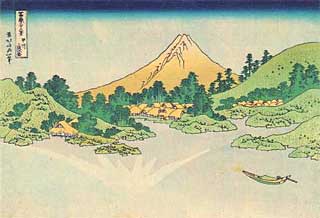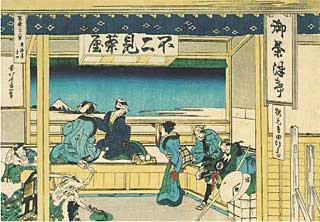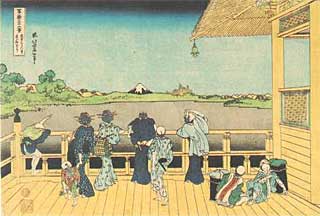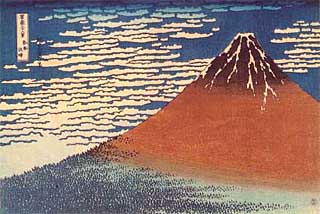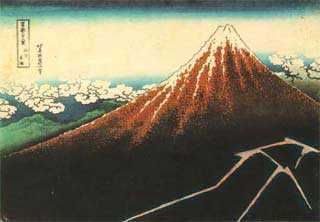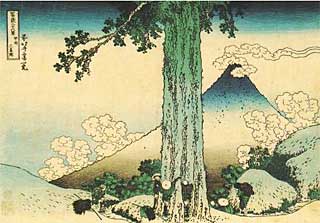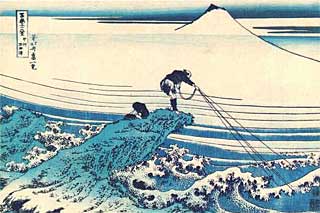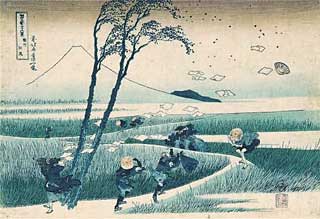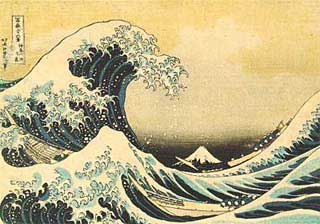901
Afroman - 'Because I Got High'
I was gonna clean my room until I got high
I gonna get up and find the broom, but then I got high
My room is still messed up, and I know why
- 'cause I got high
'cause I got high
'cause I got high
I was gonna go to class before I got high
I coulda cheated and I coulda passed, but I got high
I am taking it next semester and I know why
'cause I got high
'cause I got high
'cause I got high
I was gonna go to work but then I got high
I just got a new promotion but I got high
Now I'm selling dope and I know why
'cause I got high
'cause I got high
'cause I got high
I was gonna go to court before I got high
I was gonna pay my child support but then I got high
They took my whole paycheck and I know why
'cause I got high
'cause I got high
'cause I got high
I wasn't gonna run from the cops but I was high
I was gonna pull right over and stop but I was high
Now I am a paraplegic - because I got high
'cause I got high
'cause I got high
'cause I got high
I was gonna pay my car note until I got high
I was gonna gamble on the boat but then I got high
Now the tow truck is pulling away and I know why
Because I got high
Because I got high
Because I got high
I was gonna make love to you but then I got high
I was gonna eat yo pussy too but then I got high
Now I'm jacking off and I know why
'cause I got high
'cause I got high
'cause I got high
I messed up my entire life because I got high
I lost my kids and wife because I got high
Now I'm sleeping on the sidewalk and I know why
'cause I got high
'cause I got high
'cause I got high
I'm gonna stop singing this song because I'm high
I'm singing this whole thing wrong because I'm high
And if I don't sell one copy I know why -
'cause I'm high
'cause I'm high
'cause I'm high
Bushman - 'Cause I Got High'
I wasn't gonna score me no dope, to get me high,
I wasn't gonna drive while giggling drunk...I got high.
Man, I wasn't gonna inhale skunk! No, that is a lie!
'Cause I got high,
'Cause I got high,
'Cause I got high.
I coulda been a fighter pilot once, but I got high.
A big chief in the National Guard, but I got high.
Now. man! I couldn't fly a kite, and I know why:
- 'Cause I got high,
'Cause I got high,
'Cause I got high.
I wasn't gonna campaign for Pres, but I got high.
I can't fix a whole sentence together, 'cause I got high.
Now I ain't no better than that pothead Clinton, hope you know why:
'Cause I got high,
'Cause I got high,
'Cause I got high.
I was gonna sign Kyoto, I swear, but I got high,
I was gonna clean my cowboy act up, but I got high.
It was a slight ambitious misjudgment, and I know why:
'Cause I got high,
'Cause I got high,
'Cause I got high.
I was gonna bomb Pyongyang, I said, high as the sky.
Show those slit-eyed commies who's da boss, but I got high.
Now bombs are gonna wipe ME out, and I know why
- 'Cause I got high,
'Cause I got high,
'Cause I got high.
I was gonna slip my Johnson to Laura, but I got high.
I was gonna make the earth move for her, but I got high.
Now Tony Blair's sitting on my lap - I know why:
'Cause I got high,
'Cause I got high,
'Cause I got high.
I guess I'm gonna stop toking dope, tell you why:
I'm gonna kick my brown-nugget drugs habit, if I die.
When I'm impeached and I'm washing dishes, hope you know why:
- 'Cause I got high,
'Cause I got high,
'Cause I got high.
Gee! I buggered-up the whole world, 'cause I got high
On copious blow, I lost the plot, 'cause I got high.
Now I'm piped off my stoopid face giggling...I know why:
- 'Cause I got high, 'cause I got high, 'cause I got high,
'Cause I'm high, 'cause I'm high, 'cause I'm high.
902
The starting text for this anagram is a section from the essay on Mt. Fuji in Exotics and Retrospective by Lafcadio Hearn, an Irish writer who spent his last 14 years in the late 1800's living in Japan, and is well-known for his writings about that country. This is from section 6 of the essay "Fuji-no-yama" (whose entirety can be found here, if you're interested) and tells the story of one particular couple's adventure with the mountain, in the context of the tale of Hearn climbing the mountain himself.
Squatting by the wood fire, I listen to the goriki and the station-keeper telling of strange happenings on the mountain. One incident discussed I remember reading something about in a Tokyo paper: I now hear it retold by the lips of a man who figured in it as a hero.
A Japanese meteorologist named Nonaka attempted last year the rash undertaking of passing the winter on the summit of Fuji for purposes of scientific study. It might not be difficult to winter upon the peak in a solid observatory furnished with a good stove, and all necessary comforts; but Nonaka could afford only a small wooden hut, in which he would be obliged to spend the cold season without fire! His young wife insisted on sharing his labors and dangers. The couple began their sojourn on the summit toward the close of September. In mid-winter news was brought to Gotemba that both were dying.
Relatives and friends tried to organize a rescue-party. But the weather was frightful; the peak was covered with snow and ice; the chances of death were innumerable; and the goriki would not risk their lives. Hundreds of dollars could not tempt them. At last a desperate appeal was made to them as representatives of Japanese courage and hardihood: they were assured that to suffer a man of science to perish, without making even one plucky effort to save him, would disgrace the country; - they were told that the national honor was in their hands. This appeal brought forward two volunteers. One was a man of great strength and daring, nicknamed by his fellow-guides Oni-guma, "the Demon-Bear," the other was the elder of my goriki. Both believed that they were going to certain destruction. They took leave of their friends and kindred, and drank with their families the farewell cup of water - midzu-no-sakazuki - in which those about to be separated by death pledge each other. Then, after having thickly wrapped themselves in cotton-wool, and made all possible preparation for ice-climbing, they started - taking with them a brave army-surgeon who had offered his services, without fee, for the rescue. After surmounting extraordinary difficulties, the party reached the hut; but the inmates refused to open! Nonaka protested that he would rather die than face the shame of failure in his undertaking; and his wife said that she had resolved to die with her husband.
Partly by forcible, and partly by gentle means, the pair were restored to a better state of mind. The surgeon administered medicines and cordials; the patients, carefully wrapped up, were strapped to the backs of the guides; and the descent was begun. My goriki, who carried the lady, believes that the gods helped him on the ice-slopes. More than once, all thought themselves lost; but they reached the foot of the mountain without one serious mishap. After weeks of careful nursing, the rash young couple were pronounced out of danger. The wife suffered less, and recovered more quickly, than the husband.
The goriki have cautioned me not to venture outside during the night without calling them. They will not tell me why; and their warning is peculiarly uncanny. From previous experiences during Japanese travel, I surmise that the danger implied is supernatural; but I feel that it would be useless to ask questions.
The door is closed and barred. I lie down between the guides, who are asleep in a moment, as I can tell by their heavy breathing. I cannot sleep immediately; - perhaps the fatigues and the surprises of the day have made me somewhat nervous. I look up at the rafters of the black roof - at packages of sandals, bundles of wood, bundles of many indistinguishable kinds there stowed away or suspended, and making queer shadows in the lamplight. . . . It is terribly cold, even under my three quilts; and the sound of the wind outside is wonderfully like the sound of great surf - a constant succession of bursting roars, each followed by a prolonged hiss. The hut, half buried under tons of rock and drift, does not move; but the sand does, and trickles down between the rafters; and small stones also move after each fierce gust, with a rattling just like the clatter of shingle in the pull of a retreating wave.Below is an anagram of this text into nine poems (one, #4, being a short retelling of Hearn's story) inspired by nine images from Hokusai's famous series of woodcuts, the Views of Mt. Fuji. Each poem is shown with its accompanying image.
[1] Fuji's perfect outline points heavenward
near the river's mouth.
The firm peak in the warm sky
paints across the lake an odd reflection,
with dirt draped in snow
rather than brown land almost up to the top.
Perhaps the elder pedagogue of Edo
is making a subtle point.
The old boatman of Kai
rowing to the tranquil village there
And the middle-aged Buddhist
who once pined for youthful times
Endorse this bitter truth:
Seen on reflection, things are often changed.[2] Summer at midday.
The deck of a tea house on the tan road to Kyoto
is almost full of men and women.
Two brusque men work on their master's carriage.
Two others pause for a nap.
A courtesan demands her favourite drink,
adding quite haughtily
"That you are tired does not matter to us."
Only one heeds with kind regard
the voluptuous plain,
Mount Fuji on the horizon,
the cities beyond.
A group which imitates the leaders
of certain nations today.[3] The gifted artist devoted this panel to a scene
that evokes the refined tea-house tableau
but is, we deduce with careful study,
almost the opposite.
The building is bigger, grander:
not a house of commerce and commotion
but a noiseless temple of silent sanctuary.
Nearly everyone is staring at the fine view of Fuji.
The small girl, her view of the vista blocked,
ponders the old riddle:
If a peak dwells in the distance
but is hidden, does it exist?[4] Footsteps go east.
Two sufferers, a weatherman and his wife,
hunker down to run through hueless snow
on the dead, lifeless, ice-bound turf
back to their little hut on the dew-fogged top
of Edo's storied mount.
Inside, a buttercup flower
in a kettle on a naked table:
the third thing in danger
of being dead before the cherry blossoms break.
Death before dishonor is their shared motto.
(If politicians followed that rule
only about seventeen
would remain breathing today.)[5] Gray-tinted clouds befogging the base
are fouled with piercing zigzags of pure white
as heavy rain runs down slopes to the basin below.
The peak tries hard to stay unspoilt,
but it may or may not;
The mountain does not speculate,
nor the awful deluge.
Hidden from view,
a wealthy samurai bows his head,
rebukes in gruff tones
the rough path his feet walk upon
then thinks a while.
The round ruddy sun sets,
painting his mountain's profile fiery red.[6] A large conifer claims its dominance
in the center of this oddly phallic vista.
Below, curious men attempt to measure its girth,
encircling its woody body beneath
the dense timber and rugged matter,
even as protruding pine needles and offshoots
scratch and hurt them.
Up there in the heated canopy
blue birds live with the quail
in nests made of new shoots;
Chaos, pain, weapons, or mythological dragons are not found.
While at the severe woodland's leafy bottom,
everything is weighty.[7] The tired fisherman perches there
on the cramped rock, holding four lines
in the turgid updraft of water
that lashes and breaks unto the shore.
A small figure (son or daughter, perhaps)
holds a basket of surf clams, tuna, damp cereals:
their nutriment for the coming days of heavy work
with plow and web and cogged wheel.
So in accord with nature are the widower and kid
they fail to notice how often their tableau
imitates that renowned formation,
Mount Fuji.[8] Going west on Tokaido Road
seven humpbacked travelers are beset
with a sudden gust of wind
that sweeps down the highway,
scattering papers here and there
under gray leaves which fly through the air like dead fowls.
Outwitted and confused by
the drama of streams and currents taking place there
no one even notices this:
The papers that hold the weighty writings of
The Great Teacher,
once believed to be so classic and essential,
are blank as the face of Fuji.[9] Pinnacles are rarely reached easily.
Ever since the master drew this great water scene,
all waves are expressed
(knowingly or not)
by how they match
its rugged nucleus of foam and fluid.
Mad men in miniature schooners go by,
Heaved on fat swells high up in the air
then (ebb inevitably pursuing flow) earthward.
Shipmates cast off dire hopes.
Quiet pervades the peak.
As dusk falls like a knitted blanket
we apprehend Fuji's rueful theme:
Summits easily reached rarely are pinnacles.In addition to being an anagram, the construction of these poems (each having exactly 81 words) was governed by another constraint, which is revealed by applying this procedure to each of the nine poems:
(1) Arrange the poem's 81 words in a 9x9 square, in the obvious way: by writing the words, in order, in 9 lines of 9 words each.
(2) Make a 9x9 grid of numbers, Grid D (for Divisibility), where each cell has the number "1" if the sum of the letter values in the corresponding word (using A=1, B=2, C=3 etc.) is exactly divisible by 9, or "0" if it is not.
(3) Make another grid of numbers, Grid L (for Length), with a "1" in each cell if the corresponding word has exactly nine letters, or "0" if it does not.
(Note that the rules for Grid D and Grid L are both based on the number 9, in keeping with the theme of nineness.)
For example, here are the grids for the final poem:
GRID D (the 1's mark the locations of the words with letter-sum divisible by 9)
0 0 0 0 0 0 0 0 0
0 0 0 0 0 0 0 0 0
0 0 0 1 0 0 1 0 0
0 0 0 0 0 1 0 0 0
0 0 1 1 0 1 1 0 0
0 0 0 0 1 0 0 0 0
0 0 1 1 1 1 1 0 0
0 0 0 0 0 0 0 0 0
0 0 0 0 0 0 0 0 0GRID L (the 1's mark the locations of the 9-letter words)
1 0 0 0 0 0 0 0 0
0 0 0 0 0 0 0 0 1
1 0 0 0 0 0 0 0 0
0 0 0 0 0 0 0 0 1
1 0 0 0 0 0 0 0 0
0 0 0 0 0 0 0 0 1
1 0 0 0 0 0 0 0 0
0 0 0 0 0 0 0 0 1
0 0 0 0 0 0 0 0 1Next, form Cube D and Cube L by stacking the grids for the nine poems - poem #1 on top, #2 directly under it, then #3, and so forth. Imagine building Cube D and Cube L (each being a 9x9x9 arrangement of 729 small cubes) out of physical materials, with the following rule: a small cube labelled "0" is made with transparent glass, a "1" cube with solid wood.
Now for the final step. Suspend Cube D and Cube L in a room and shine four beams of light at them: from the top and right onto Cube D and from the front and right onto Cube L. The shadows cast by the cubes on the walls and floor are shown in the picture below, which was created using a computer graphics model of the two cubes:
The shadows make reasonable renderings of four Japanese Kanji characters which are especially pertinent to our anagram:
The red shadow is the symbol for fire.
The green shadow is the symbol for mountain.
Put together, these make the compound Kanji symbol ("fire-mountain") for volcano.The white shadow is the symbol for wealth, pronounced FU
The blue shadow is the symbol for samurai, pronounced JI
Put together, these make the compound word Fuji, the name of the mountain.
903
He comes not with a clamorous gush,
Nor with defiant echoing rush;
With voiceless footfall on the floor,
He comes to stay - the bore, the bore!
His voice is soft as unbaked bread,
And softer than his voice, his head;
His talk, it is flatter than the floor;
But yet he stays - the bore, the bore!
On those far-off days of our honeymoon,
With bright Buffie's laughter smitten;
Oh I loved her late oh I loved her soon,
Oh I called her the cutest kitten.
But that fair kittie's become a cross cat,
As cross as the other wives;
Och, by the oath old honest Bob,
I swear that she has nine lifes!
904
[Inspired by this Keats sonnet, I have transformed it into 3 different poems - each done in the style of a bard that I favor...
Enjoy!]
John Keats
How many bards gild the lapses of time!
A few of them have ever been the food
Of my delighted fancy - I could brood
Over their beauties, earthly, or sublime:
And often, when I sit me down to rhyme,
These will in throngs before my mind intrude:
But no confusion, no disturbance rude
Do they occasion; 'tis a pleasing chime.
So the unnumber'd sounds that evening store;
The songs of birds--the whisp'ring of the leaves--
The voice of waters--the great bell that heaves
With solemn sound - and thousand others more,
That distance of recognizance bereaves,
Make pleasing music, and not wild uproar.
=
[William Shakespeare]
When I do heed the poesy of old,
And grieve for subjects sung with vanish'd grace
Till nought was left behind there to behold
But fading youth that ages did deface,
Then I do find 'tis not a mind's shrewd glance
From which that I my humble art devise,
But from the roses of thy countenance
And Summer, ever-burning in thine eyes;
The Muse endures, as others rise and fall
For I choose more to gaze than to adorn:
The sweetest and most tender bud of all
Once born, in worship's view again is born.
Thine oath of beauty Time cannot consume,
Since every poem's to provoke love's bloom.
[Poe]
Alone, I find
My barren mind
Is but a wizen womb --
It duly cries for men of classic verse in hidden tombs,
The men of epic mastery confined in silent tombs.
Aha! That face!
Her virgin grace
Like shy wings of a dove!
The day now ends;
The dusk descends
As stars crowd up above --
Oh God! Those are but memories of this sweet wife beloved,
A lucid show of solemn dreams about this wife beloved.
The echoes taunt,
In ghoul-form haunt
And thus inside me burn --
Ah, ghostly lot!
I beg, do not
Compel the heart to yearn,
As she hath gone to join the angels, never to return;
Up to that higher land of Eden, never to return.
=
[Dr. Seuss]
Inside a cabin dwells the Bobb,
Who moved clear of the noisy mob.
Come dinner time, he sits to eat
A flaming Flurge and Mermle meat.
He freezes as a common spud
When things go 'OOF!' and things go 'THUD!'
He loves to scuttle, sew and itch,
And sports a major nervous twitch.
In lieu of mornings in a store,
He'd rather count to twenty-four;
In lieu of evenings by the vine,
He'd rather count to fifty-nine.
Each day he writes a timid ode,
And each month - grinds them by the load,
For they will never be the verse
Of Epo, Teaks and Heaksa Perse!
Oh, what an unproductive slob
Is our good friend, the useless Bobb!
905
Hail Mary, full of grace, the Lord is with thee;
Blessed art thou among women,
And blessed be the fruit of thy womb, Jesus.
Holy Mary, mother of God, pray for us sinners,
Now and at the hour of our death. Amen.
Tony Blair, full of lies,
Thine days are numbered;
Why don't thee just sod right off, huh?
Go home, you smug, flash bastard!
War? Madness!
How we pray
For Labour's death at the election.
One more month! Reform!
